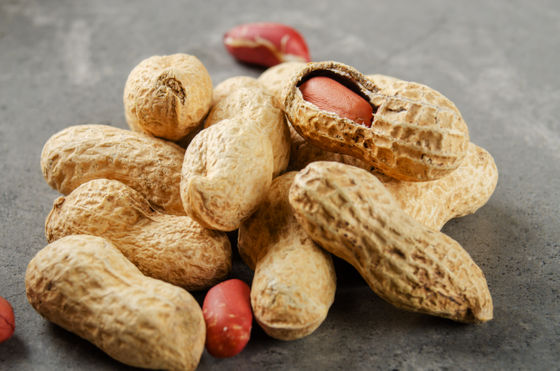Xolair (omalizumab), which is also effective against hay fever, is approved for the first time by the authorities as a treatment that reduces the risk of multiple food allergies at once

The U.S. Food and Drug Administration (FDA) announced on February 16, 2024 that it has approved
FDA Approves First Medication to Help Reduce Allergic Reactions to Multiple Foods After Accidental Exposure | FDA
https://www.fda.gov/news-events/press-announcements/fda-approves-first-medication-help-reduce-allergic-reactions-multiple-foods-after-accidental
FDA approves 1st-of-its-kind treatment for severe food allergies | Live Science
https://www.livescience.com/health/medicine-drugs/fda-approves-1st-of-its-kind-treatment-for-severe-food-allergies
FDA expands use of asthma drug Xolair to treat severe food allergies | AP News
https://apnews.com/article/xolair-food-allergy-anaphylaxis-peanut-93448af7cebcc36e2be458cb0c4ef883
Xolair is a type of drug called a monoclonal antibody that binds to immunoglobulin E (IgE), the antibody that causes allergic reactions, and blocks IgE from binding to receptors. It was originally approved in 2003 as a treatment for allergic asthma, but it is also used as a treatment for severe hay fever.
The FDA has now approved Xolair injection for adults and children over 1 year of age to reduce type I allergic reactions, including anaphylaxis, which are reactions caused by IgE. This is the first time the FDA has approved a treatment to reduce accidental allergic reactions to multiple types of foods.

Dr. Kelly D. Stone of the National Institute of Allergy and Infectious Diseases (NIAID) said, ``The newly approved use of Xolair may reduce the risk of adverse allergic reactions in certain patients with IgE-mediated food allergies.'' It does not eliminate the food allergy or allow the patient to freely consume the allergen, but it does reduce the risk of accidental exposure to the allergic food through repeated use. 'This will help reduce the health effects of these cases.'
Unlike EpiPen (epinephrine), which is used as an emergency treatment for anaphylaxis, Xolair is used for 2 to 4 weeks as a preventative measure to reduce the severity of allergic reactions in the event of an acquired tolerance to the allergen and accidental ingestion. injected every time.
Prior to approval, NIAID studied 168 patients with allergies to at least one of milk, egg, wheat, cashew, hazelnut, and walnut, as well as peanut allergy, or two or more food allergies in total. We conducted a double-blind, placebo-controlled comparative study.
The results showed that 68% (75 out of 110) of people who took Xolair for 4 to 5 months were able to ingest 600g of peanut protein (the equivalent of 2.5 peanuts) without experiencing severe or severe symptoms. About.
On the other hand, 17% of subjects administered Xolair were unable to tolerate intake of more than 100g of peanut protein, and no change in tolerance was observed, indicating that ``even with treatment with Xolair, strict allergen avoidance was not tolerated.'' 'Continuation is necessary,' the authorities said.

It is reportedly estimated that 17 million people in the United States alone suffer from potentially life-threatening food allergies, leaving sufferers and their families fearful of allergens and having to avoid social interactions such as eating out. I've given up on it. Xolair has previously been prescribed off-label for food allergies, but this approval makes it easier for people who need Xolair to obtain it.
'Providing allergy protection with Xolair will change the lives of many people with allergies and their families,' said Dr. Robert Wood, director of pediatric allergy at Johns Hopkins Children's Center. ” he said.
Related Posts:
in Food, Posted by log1l_ks







